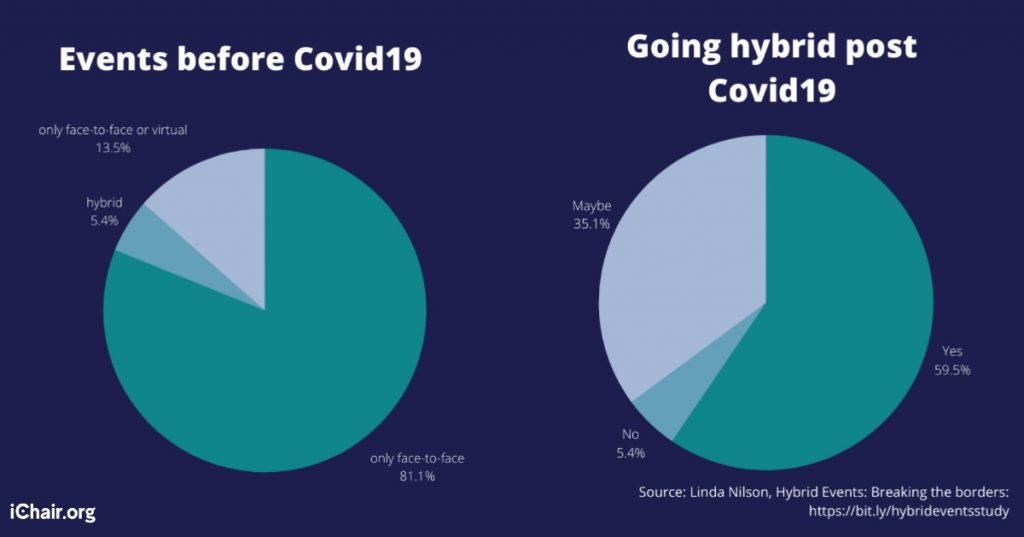Some of us have experienced the advantages of virtual events for the first time during the Covid-19 pandemic. New possibilities, budget optimization, access democratization…there are countless advantages. But what will be the future of the event industry in the post-Covid era? Are hybrid events the answer?
Hybrid events are a blend of in-person and virtual gatherings.There are endless possibilities: you can have a main site on a location, secondary in-person gatherings in other locations, virtual attendees and a lot of engaging activities both on-site and online.
If you want to have the look and feel of a hybrid event, take a look at the doors open show from Reeperbahn Festival: the 2020 edition of Reeperbahn Festival was hybrid, hosted on Scoocs and awarded for its pioneering multimedia work!
The future of the event industry: creating new hybrid communities
According to the study by Linda Nilsson “Hybrid Events, breaking the borders”, before Covid-19, 81,1% of the event planners inquired were only planning face-to-face events, and only 5,4% were planning hybrid events. After Covid-19, the percentage of event planners that intend to organize hybrid events raised to 59,5%, and 35,1% assume that maybe they will organize hybrid events. Only 5,4% of respondents will not be organizing hybrid events in the future. Quoting Linda Nilsson “In other words, face-to-face and hybrid events have switched their spots.”

The same study refers to the importance of creating a sense of belonging among the online attendees. We know that the social value of networking is one of the most important assets of an on-site event, so it’s really important to have the right tools to make hybrid networking easier, for example, the networking roulette provided by Scoocs with a matchmaking algorithm.
It’s all about nurturing a community and reinventing the boundaries of event planning: more than replicating the in-person experience, we are in a challenging moment where something new must be created. Hybrid events can provide a whole new experience and blend the best of two worlds in the future of the event industry.
Hybrid events: advantages and challenges
Along with the other formats (in-person and virtual), hybrid events present multiple advantages and challenges. Among the advantages, we can say the inclusion and democratization, sustainability, budget optimization, better analytics tools to measure ROI, the freedom of choice: in-person or online…and we are sure we cannot say all the advantages yet, since it’s a brave new world we are discovering!
Regarding the challenges, we have already identified some: mixing both audiences together (in person and online), keeping all the attendees engaged, creating real value on the networking moments and being able to allow the selfie “I was there” moment.
The key for these challenges is technology – we know, we have been there, we created Scoocs to host our own conference since we haven’t found what we’ve been looking for out there.
The future of the event industry is on technology and Scoocs can help you write a new bright chapter for your company!




